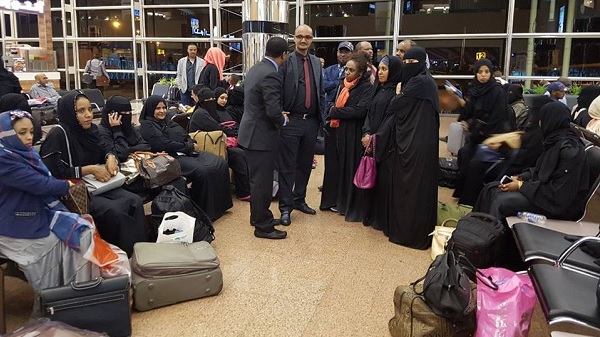
The new proclamation defines the roles and responsibilities of private recruiting agencies and the agents in Middle East countries
ADDIS ABABA (ENA)–Ethiopians are expected to start traveling to the Middle East for work beginning from October 2018, as the nation has finalized preparation, the Ministry of Labor and Social Affairs said.
The State Minister Misganaw Admasu told ENA that preparations including concluding binding bilateral labor agreements with receiving countries have finalized.
Ethiopia instituted the ban five years ago following reports of abuse, and complaints that employment agencies lured Ethiopians into working abroad in illegal and appalling conditions.
Though the nation has lifted the ban in February 2018 after passing a new law, citizens have not started to travel to those countries as the government had not finalized preparations.
The new proclamation defines the roles and responsibilities of private recruiting agencies and the agents in the receiving countries.
Ato Misganaw said the extended time that the negotiations with the receiving countries in order to conclude binding bilateral agreements took is the main reason for the delay.
Africa’s second-most populous country has concluded binding labor agreements with Saudi Arabia, Qatar and Jordan so far.
Hosting countries are obliged by the agreements to ensure the safety, dignity and rights of Ethiopian employees.
ALSO READ: Ethiopia to send helpers only after deal signed, says Ethiopian Ambassador in Kuwait
The agreements also grant insurance for the workers and facilitate the situation for them to get support from Ethiopian representatives.
In addition to facilitating the situation for Ethiopians heading abroad, the Ministry is working to improve the skill of workers through trainings by opening training centers.
Ethiopia banned its citizens from traveling to the Middle East in 2013 due to the conditions of Ethiopians who faced brutality in the hands of their employers and agents.
The government put the restriction four years ago until binding bilateral labor agreements would be concluded with the countries in the region.
Ethiopia has signed bilateral labor agreements with Saudi Arabia, Qatar and Jordan so far to govern the flow of low-skilled workers, and is working on agreements with other countries.
Source: ENA
